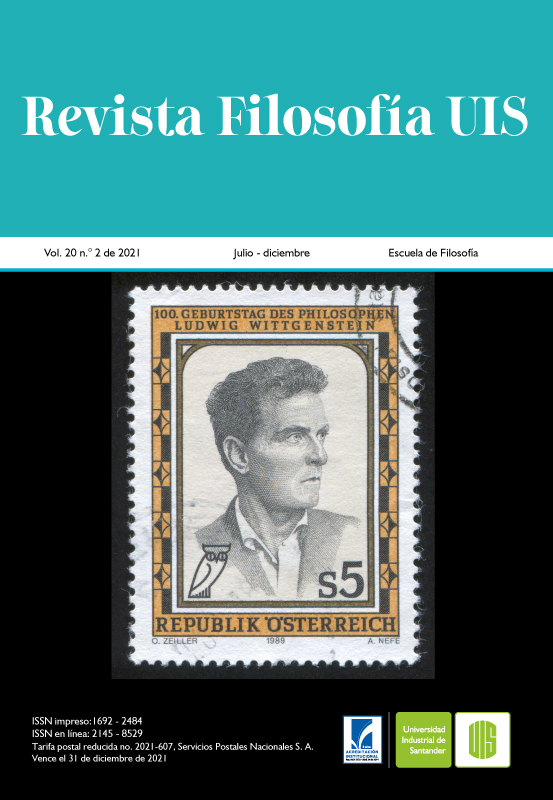God: Intuitive Science in Spinoza
Published 2021-06-11
Keywords
- God,
- immanence,
- intuition,
- knowledge,
- afecctions
- freedom ...More
How to Cite
Copyright (c) 2021 Revista Filosofía UIS

This work is licensed under a Creative Commons Attribution 4.0 International License.
Abstract
The innovation of this work on Spinoza is based on the fact of thinking some intuitions of modern science that allow to clarify the concepts of God and intuitive science in Ethics demonstrated according to the geometric order. To expound on this work in the first part, we begin with a preliminary analysis that deals with the differences between the Cartesian God and the Spinozist God. In the second part there is an analysis of the concept of God as an immanent plane in the ontology of Spinoza and from which important concepts are derived to understand what intuitive science is. A third part explains the common notions of res extensa and res cogitans that are necessary to form clear and distinct ideas through understanding. The fourth and last part talks about the development of the three degrees of knowledge and its relationship with intuitive science and its repercussions on the concept of freedom.
Downloads
References
- Alquié, F. (2015). Le rationalisme de Spinoza. Presses Universitaires de France.
- Changeux, J. (2005). El hombre de verdad. (Virginia Aguirre, trad.). Fondo de Cultura Económica.
- Deleuze, G. (2005). Lógica del sentido. (Miguel Morey, trad.). Paidós.
- Deleuze, G. (2009). Crítica y clínica. (Thomas Kauf, trad.). Anagrama.
- Descartes, R. (2001). Meditaciones metafísicas. (Jorge Acosta, trad.). Panamericana.
- Frege, G. (1971). Estudios sobre semántica. (Ulises Moulines, trad.). Ariel.
- Garza, I. (2010). Neurobiología del amor. El residente, 5(1), 6-8. https://www.medigraphic.com/cgi-bin/new/resumenI.cgi?IDARTICULO=24104
- Mandelbrot, B. (2009). La geometría fractal de la naturaleza. (Josep Llosa, trad.). Tusquets.
- Moreno, D. (2018). El Descartes de Spinoza. Revista Laguna, 42, 29-46. http://doi.org/10.25145/j.laguna.2018.42.002
- Prigogine, I. y Stengers, I. (1998). Entre tiempo y eternidad. (Javier García Sanz, trad.). Alianza Editorial.
- Spinoza, B. (1985). Descartes´s Principles of Philosophy. En, E. Curley (Ed., y trad.). The collected Works of Spinoza (pp. 226-231). Princeton University.
- Spinoza, B. (2001). Ética demostrada según el orden geométrico. (Oscar Cohan, trad.). Fondo de Cultura Económica.
- Spinoza, B. (2006). Tratado de la reforma del entendimiento. (Oscar Cohan, trad.). Cactus.
